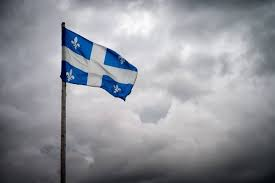
The health ministry of Quebec has introduced draft regulations that would prohibit the sales of flavored vaping products (except tobacco flavor), and ban e-liquid bottles with a capacity greater than 30 mL and prefilled devices that hold more than 2 mL. The regulations would also limit nicotine strength to 20 mg/mL (2 percent)—although the same limit is already mandated in federal rules.
The draft regulations were published Wednesday, and are scheduled to take effect 90 days after publication (July 20). People opposing the regulations have just 45 days to comment by contacting Minister of Health and Social Services Christian Dubé.
The news for Quebec vapers and vaping businesses this year has been all bad. The province had already announced its intention to impose a hefty tax on vaping products that would be assessed in addition to the federal tax already paid by vaping consumers. The federal tax alone adds about $10 to the price of a 60 mL bottle of e-liquid; the proposed Quebec tax would essentially double the tax paid per bottle.
An extreme threat to 400 Quebec vape shops
A flavor ban will shrink the independent vaping industry in Quebec, as vapers switch to illicit flavored disposable vapes, or buy online from retailers in other provinces. The draft regulations acknowledge that specialty vape shops will bear the brunt of the economic damage.
Quebec is the second-most populous province in Canada, with 8.5 million residents. According to the Alliance des boutiques de vaping du Québec (Alliance of Vape Shops in Quebec), there are over 400 independent vape shops in the province, employing over 2,200 people and generating more than $300 million in economic activity. The trade group predicts the shops will all close.
The Canadian Vaping Association (CVA) agrees. “Canada has already seen through Nova Scotia that within 90 days of a flavour ban, the speciality industry was decimated. Quebec will experience thousands of business closures, job losses, broken lease agreements and terminated contracts with tertiary suppliers,” the CVA said in a press release.
Six of 13 provinces and territories have now passed flavor bans
If the draft rules are implemented (which is likely), Quebec will become the largest Canadian province to prohibit flavors. The four other provinces and territories with flavor bans—Nova Scotia, Prince Edward Island, New Brunswick, and the Northwest Territories—have much smaller populations.
Nunavut has also passed a flavor ban, but has not set a date for implementation. Three other provinces—British Columbia, Ontario and Saskatchewan—restrict flavored products to adult-only stores like vape shops.
In 2021, federal health agency Health Canada proposed a flavor ban that was scheduled to take effect in early 2022, but that plan seems to have been abandoned or postponed indefinitely without explanation. Health Canada’s updated vaping products regulations page makes no mention of the flavor restrictions.
